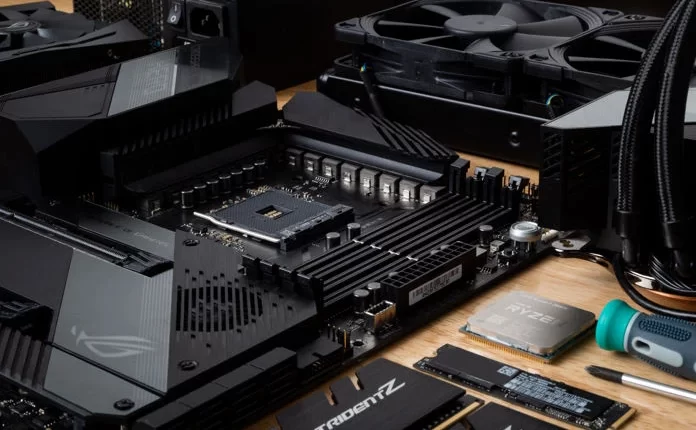There’s a lot of bad advice out there. Just look at the relationship forums on Reddit. But today we’re going to steer you away from some common misconceptions about PCs that even you enthusiasts might have fallen for.
Graphics Card Upgrade: A Waste of Time and Money?
First off, let’s talk about your graphics card. Perhaps you’ve been eyeballing it the same way you’d eyeball a long-term partner and you’re considering replacing it for a newer, sexier model. But here’s a word to the wise, just like in real life, there’s a good chance it’ll be a waste of time and money, and you should maybe just try therapy instead.
Even as games have gotten more complex, you don’t need the most powerful or most recent GPU to play games at a decent frame rate. At the time we wrote this video, the most common GPU in the Steam Hardware Survey was the GTX 1650. And the next seven most common graphics cards after that were all in the Nvidia XX50 or XX60 category. In other words, we’re talking mid-range chips up to around seven years old, a long time in PC component land.
Now, don’t get us wrong, you’ll need something more powerful to run the most demanding titles at 4K on maximum settings. But if you’re just trying to have a solid, medium to high experience at 1080p, chances are the graphics card in your current rig can deliver that. So maybe save your money for more actual games instead.
RAM Speed: Not What You See on the Box
Here’s another performance-related misconception we’d like to clear up, thinking that your RAM will run at the speed on the box right out of the box. You see, when you first plug in your RAM sticks, they’ll run at a default speed set by JETEC, an industry group that decides on standards for memory. Although this makes it much more likely that your RAM will be stable as the default speeds and timings are rather conservative, you’ll have to complete an additional step if you want it to run at its actual rated speed.
Open up your BIOS, which you can usually do by spamming delete at startup, and find the setting that will allow you to quickly adjust your memory speed. If you have an Intel CPU, this will be called XMP. But if you have an AMD processor, it might be called EXPO, DOCP, or EOCP. Simply select the option that matches the numbers on your RAM packaging, save, and reboot, and you should be good to go.
And because modern memory modules tend to be thoroughly tested, you shouldn’t have too many issues after you enable the right setting.
Viruses and Malware: Not the Primary Culprits
Here’s a tip for both PC enthusiasts and random grandparents everywhere. Viruses and malware don’t necessarily slow your computer down. 20 to 25 years ago, the extra load that viruses would put on your system, sometimes including annoying pop-ups that would appear out of nowhere, could slow your computer down to a crawl, especially as most computers of the era had slow, clunky, mechanical hard drives.
But these days, viruses have more of an interest in harvesting your information in the background than hogging your RAM or your CPU cycle. Not to mention that the vast majority of modern PCs have solid-state drives, meaning that there’s a good chance you won’t notice it when the most insidious types of malware are running in the background.
And while this can unfortunately make malware harder to detect at first glance, it also means a slow PC probably has some other culprit, insufficient RAM or a severely underpowered processor being among the prime suspects.
Conclusion
What are your misconceptions you’d like your fellow PC enthusiasts to be aware of? List them below in the comments, and you might see them on a future episode of Tech Quickie. That’s this show. But for now, thanks for watching. Like the video if you liked it, dislike it if you disliked it. Check out our other videos. Comment below with video suggestions. We always need things to think about and look up on Google. And don’t forget to subscribe and follow on Google.
#Debunking #Common #Misconceptions #PCs


